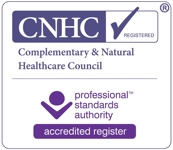Most smokers find it hard to believe, but much of the stress relieved by smoking a cigarette was actually caused by smoking the one before. When a smoker has a cigarette, the chemicals inhaled signal the brain to release endorphins (the body's natural pain killers), so its not the cigarette that makes you feel good, but the body's defence mechanism against the poison. However, to ensure that the body has enough pain killers to fight off the next attack (i.e. the next cigarette) the body stops it's natural cycle of releasing endorphins. When the anticipated release of endorphins does not happen, the smoker experiences stress and craves the endorphin release now associated with smoking a cigarette, not realising that this lack of the normal release of endorphins was actually caused by the previous cigarettes they smoked.
Stopping smoking can be a challenging task, you may already have tried. Perhaps you used nicotine gum or patches or perhaps just willpower. According to research, hypnosis is three times more effective than nicotine replacement in helping break the smoking habit. Hypnosis enables change to be made quickly and completely, once you have made the decision to stop. Once you have taken the decision that you now wish to be a non-smoker, you will be helped to see the process as getting rid of something you no longer want rather than giving up something that you want to do. The sessions will be tailored to your needs, giving the support required to help you break the habit. With hypnosis, you will be able to stop smoking without putting on weight as you will not be replacing one habit with another.
Once you no longer smoke, the benefits are almost immediate:
(NHS Choices)
We all have habits, which are usually not that harmful. A habit is something we do without thinking. It is an automatic response which because we do it regularly has now become second nature; once we are consciously aware of them, they can usually be stopped. An addiction is a conscious and impulsive response which seems uncontrollable and is usually harmful. A habit has become an addiction when it distracts you from your normal routine, overrides other feelings, becomes difficult to control and causes physical symptoms if you stop. There is no clear answer as to why people develop addictions. It is thought to be a combination of behavioural factors (including genetics, background and personality) and chemical factors (some substances trigger the release of dopamine and endorphins in our body which give a feeling of pleasure).
The most common addictive substances are:
The most common addictive activities are:
These activities trigger the release of dopamine which causes a feeling of great pleasure, so the activity is repeated again and again causing a dependancy. Some general signs of addictive behaviour are changes in sleeping patterns, rapid mood swings, changes in energy levels, being more susceptible to illness, dilated or contracted pupils and weight loss or gain.
It has been estimated that around 30% of children, and 15% of adults bite their nails. It is a destructive habit that statistically affects males more than females.
Nail biting can range from an irritating habit to something that is detrimental to our sense of self worth and confidence. It can even be a social barrier or affect our professional image in a job or career. There are many reasons why an individual might bite their nails; as an adult it may be a purposeless habit left over from childhood, a release of tension, a sign of anxiety or low confidence. It can be a form of self punishment / self harm or a destructive reinforcement of not being loved or being rejected. Whatever the reason it creates a vicious circle with our self confidence.
We can help by trying to uncover the root of the unwanted habit or addiction and helping you to gain insight into the unwanted behaviour. We can then identify ways to regain control, to address unhelpful patterns of behaviour and identify more constructive coping mechanisms.




